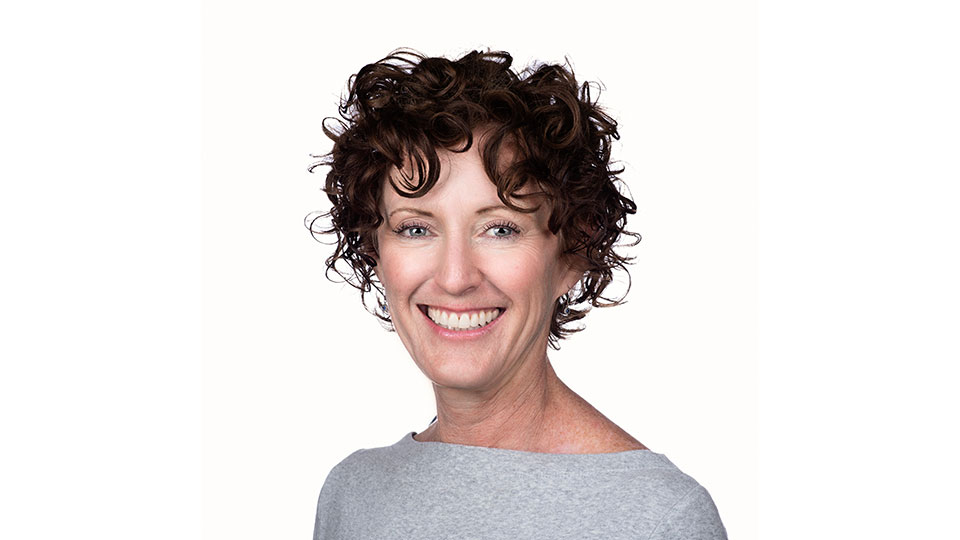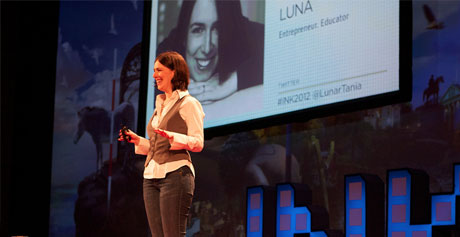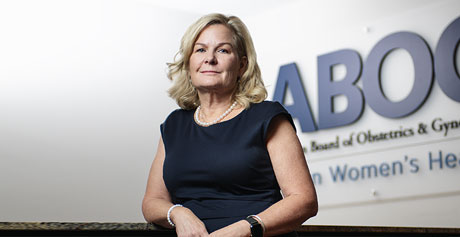She Leads a Nationally Recognized Social Enterprise Nonprofit that Provides Employment to Women that Desire to Break Away From Unemployment & Poverty. Meet Author & CEO of the Women’s Bean Project, Tamra Ryan

As an organization they have committed to hiring every woman who comes in asking for a second chance because they believe their program can have a profound impact on their lives, their families, and our community. Women’s Bean Project brings together a passionate and diverse team of social enterprise practitioners, young entrepreneurial thinkers, change makers, workforce development specialists, sales and marketing professionals, and skilled business professionals to help advance their mission.
Q: For those in our audience not familiar with Women’s Bean Project, can you tell about the organization and what you all do?
TR: Women’s Bean Project believes all women have the power to transform their lives through employment. So, we hire women experiencing chronic unemployment and we teach them to work by making nourishing food products that we distribute in stores across the US and online through some of the country’s largest retailers. The job is full-time transitional employment, meaning that the women work with us for seven months, then transition into career entry-level jobs upon graduation. Women’s paid time is split between working in our food manufacturing business (70%) and working on their own personal development (30%).
The work in our business helps them learn job readiness skills such as attendance, punctuality, and attention to detail. During the life skills portion of their time they learn planning, organizing, and budgeting; address basic needs such as housing, childcare and healthcare; and addressing the internal issues that have held them back in the past. We employ about 60 women per year and a year after graduating our program 95%+ are still employed.
Q: How has WBP made a difference and what impact do you still wish to see it make?
TR: I fundamentally believe that when you change a woman’s life, you change her family’s life. We have served over a thousand women since 1989 and we have stayed in touch with many of those women, tracking their journeys through the years. What I would most like to see is that the services we provide to each woman we hire are so effective and far-reaching that she is the last person in her family to need us. I want to make sure the in 20 years we are not serving the daughters of the women we serve today.
Q: What is it you like to say to potential donors and volunteers?
TR: There are many ways to be meaningfully engaged with the Bean Project and I encourage people who are interested in the work that we do to contact us. Grants and donations support the life skills classes that are key to the women’s long term success. There are many opportunities for volunteers to be engaged in our program, working directly with the women we serve.
Q: As CEO, what do you personally spend most of your time on?
TR: I spend most of my time on two things: setting the strategic direction for the organization and then guiding everyone to work toward that vision for the future and bringing resources to the Bean Project. Each day is different, but each activity is geared toward these two things.
Q: Has Covid-19 had an impact on your nonprofit?
TR: Like all organizations, COVID has affected us in many ways. Because we sell dry food products, including dried bean soup mixes and instance rice and beans cups, among other pantry staples, our sales have grown over the last several months, which has ensured we are able to keep all staff and hire additional program participants. However, our operations have been forced to changed. Because our food manufacturing and distribution is considered an essential business, we have continued to be open, but we are required to keep our onsite workforce at 50%. Currently our administrative staff works primarily from home and we have a shift schedule for when they are allowed to be onsite. We have added numerous additional cleaning and safety procedures to our everyday processes. For a period of time we suspended most of our life skills programming, which is mostly led by volunteers, and moved case management (helping the women meet their basic needs) to Zoom calls. We are now beginning to bring back programming and looking at ways to offer classes in person and remotely through investments in technology.
Q: Where do you see Women’s Bean Project five years from now?
TR: In five years we will be in a new location! We have identified a new building, are currently fundraising, will renovate, then move to our home in early 2022. This new, larger space will allow us to grow our business operations, achieve economies on our raw materials because of additional storage, and do work for other companies, ultimately creating more jobs. Beyond that, programmatically we will be several years into a relationship with Colorado’s Department of Corrections for hiring women on work release who are in their last few months of incarceration through their release back into the community. This will allow women to leave prison with money in the bank and stability through employment. We are excited for the impact on reducing recidivism and improving long-term success for women and families.
Q: You’re also an Author, can you share with our audience your book “The Third Law” and why you chose to write it?
TR: The Third Law refers to Newton’s Third Law of Motion: for every action there is an equal and opposite reaction. The book intends to show that even as women work to change their lives there are forces pushing back on that change that can easily undermine their progress. It explores what is required for chronically unemployed and impoverished women to create new lives for themselves. I wrote the book, a series of stories about what I have learned from the women we serve at the Bean Project, because I saw that when I began working at the Bean Project I brought with me biases and prejudices I wasn’t even aware I had. I have learned the women we served were not their sum of their backgrounds. They are mothers and wives and recovering addicts. They have been abused and loved and, yes, made bad decisions. But they are also human and who among us has never made a mistake?
Additionally, I realized that often the only difference between us was the accident of birth. I happened to be born to a white middle class family in Colorado Springs. That didn’t make me special, but it did force me to understand my own privilege and gave me a responsibility try to tell the women’s stories in an attempt to change hearts and minds of others who might have no reason to know why a woman might get caught in a cycle of chronic unemployment and poverty.
Q: What is one word of advice you can offer to young women who want to reach your level of success?
TR: I have what I call my Park Bench Analysis. When I’m 80, sitting on a park bench, looking back at my life, what will I regret not having done? It has helped me analyze all manner of opportunities and decisions. I also have a policy that fear is not an excuse. Just because I might be afraid to do something, doesn’t give me permission not to do it; in fact, it is really a signal that I need to figure out what is at the root of the fear and address it.
Q: What’s one lesson you’ve learned in your career that you can share with our audience?
TR: Don’t follow the argument. People who are good at arguing will try to lead you away from your key points, your convictions. Don’t let them. Be clear on what you care about, what is important to you and stick with that – even if it means repeating yourself ad nauseam. You won’t regret it. You’ll have stuck to your guns and won’t have to look back and wonder how you got to the end result.
Q: Which woman inspires you and why?
TR: There are so many. I admire women who lift up other women, who don’t see other women’s achievements as their own diminution. I think it was Madeline Albright who said, “There’s a special place in hell for women who don’t help each other.” Though I might not be so extreme, I do believe we are all in this together and women have a unique ability to relate to, empathize with and support one another.
Q: What advice would you give to young women who want to pursue a career working with Nonprofits?
TR: Learn how to do other things first. In other words, develop other skills; marketing, finance/accounting, management, etc. and then take them to a nonprofit. The perspective will be valuable. Choose an organization whose mission you feel passionate about. I also recommend against starting your own nonprofit, particularly at the beginning. Chances are good that an organization exists that addresses the thing you care most about. Go there and learn from them – even if it is as a volunteer – before you try to create a whole new organization addressing the same problem.
Five Things About Tamra Ryan
1. If you could talk to one famous person past or present, who would it be and why?
There are almost too many people from the past I’d like to meet to know where to start, so I’ll choose someone from the present: Barack Obama. I’d choose him because I am in awe of his ability to inspire people, particularly through his public speaking ability. I want to learn how to do that!
2. Would you rather vacation in Hawaii or Alaska, and why?
I’d choose Hawaii because it is very different from where I make my home in Colorado and for a vacation, I like to have different experiences. That said, experiencing how pristine everything is in Alaska feels a bit like Colorado on steroids.
3. Favorite movie?
The first movie that comes to mind is Jerry Maguire. Not because of the corny, you complete me line, but because Jerry had a realization that he wasn’t living a life he could believe in and he had the courage of his conviction that things could be done differently and he stood by it.
4. What app can’t you live without?
Right now, I’d have to say it’s either Zoom or Outlook, because they are the two apps that keep me in touch with people.
5. If you could go back in time, what year would you travel to and why?
The first thought that comes to mind is going back to a year during the height of the Women’s Suffrage Movement in the US, say 1918 or 1919, just before women got the vote. It would be fascinating and inspiring to see and participate in the protests, hear the conversations, and see the women make progress toward a right that might be easy to take for granted today

